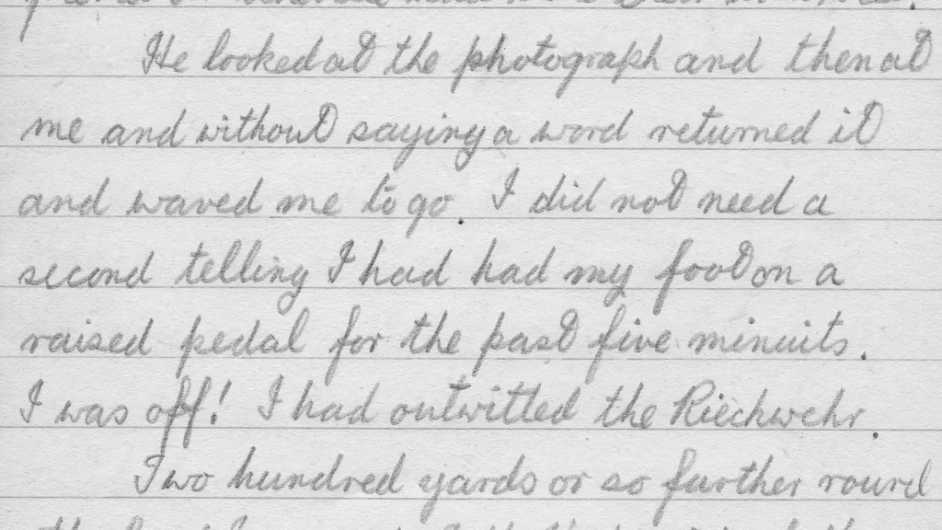The 21-year-old managed to escape captivity and travel 2,000 miles through Nazi-occupied Europe to Spain
A British soldier’s handwritten notebook detailing how he escaped from a Nazi prison during World War II has been published after it was discovered at auction.
Pte Ray Bailey, from Dunstable in Bedfordshire, was among the Allied troops captured by the Germans in 1940 after the surrender of French forces at St Valery-en-Caux.
The 21-year-old managed to escape captivity and travel 2,000 miles through Nazi-occupied Europe to Spain, where he was then flown back to his parents’ home in England.
His 80,000-word account of his experience was found in an online auction won by amateur social historian David Wilkins, who has now published it under the title Blighty or Bust.
The 69-year-old, from Portland, Dorset, bid on the box of World War II memorabilia without knowing exactly what the contents would be.
Inside, the diary collector found photographs, foreign currency and several notebooks written by Pte Bailey on his return to England in 1940.
He stated the following:
“When it arrived I couldn’t believe its quality. Most published World War II memoirs were written much later in people’s lives, but he wrote as if he were recounting a holiday he took 18 months earlier. I don’t think anything like it has been found, written so close to the events of the war»
Who was the fugitive writer?
Known to his family as Ray, Pte Bailey was born in 1919 in Chester-le-Street, County Durham. The family moved during his childhood to Dunstable, where the family found work at the Vauxhall Motor Works in nearby Luton.
In May 1940, it was part of the Kensington Battalion deployed to France to reinforce the French army.
Allied troops were forced to surrender to the Germans on 12 June 1940 and the 270 men of the Kensington Regiment were taken to prisoner of war camps where they remained until May 1945.
Pte Bailey, who had managed to escape as he was being transported to the camp by walking into a cornfield, was home in Dunstable in December 1940.
Over the next few years, he wrote a full account of his escape, the days he went without food, and the people who helped him hide or advance further into the continent.
A truly unique story
Mr. Wilkins wants readers to discover what happened to Pte Bailey during the rest of the war by reading the book. And he added:
“I think anyone who looked at the original manuscript would have thought, “People should read this. It tells us something about war.” My dad fought in WWII. We never knew anything about what he did because he didn’t talk about it. That’s why it’s so interesting – and to think it was written by this lad who had left school at 14. He obviously had a gift».
Raymond Tattle, historical officer of the Princess Louise Kensington Regimental Association, described the story as “unique”.
He said: “This is someone who worked as an apprentice at Vauxhall cars, probably never been abroad before. His persistence, initiative, cunning and courage helped him escape. We have an order motto: Quid nobis ardui – meaning nothing is too difficult for us. Raymond Bailey showed a true Kensington spirit. The fact that David was able to discover these documents is very unique».
Source :Skai
With a wealth of experience honed over 4+ years in journalism, I bring a seasoned voice to the world of news. Currently, I work as a freelance writer and editor, always seeking new opportunities to tell compelling stories in the field of world news.











